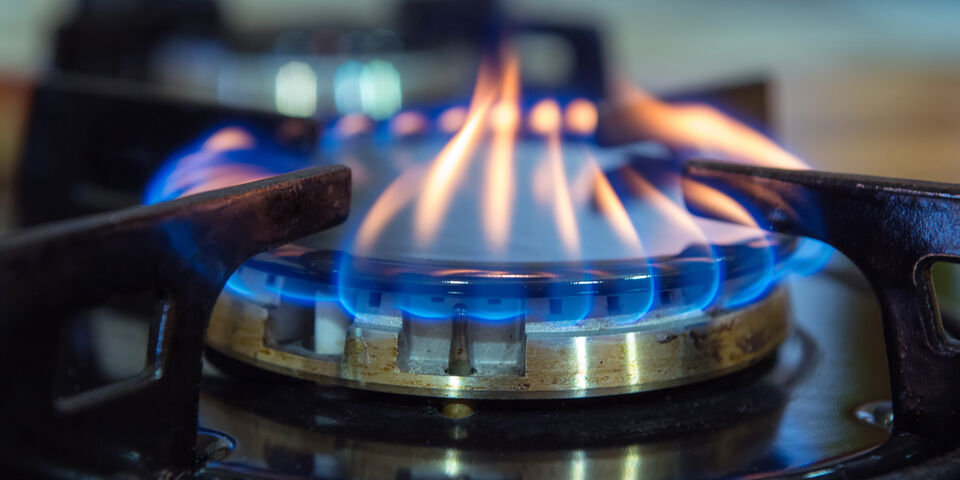Prof Talk | Left out in the cold due to soaring energy prices
Energy prices have been soaring in recent weeks, with no end in sight. Global energy demand has increased significantly as a result of the economic recovery after COVID-19 and has by now outpaced supply. Russia says that it can’t increase its energy supplies, and Europe doesn’t have enough reserves due to a cold winter and last summer’s high gas prices. Bring out the warm sweaters and hope for a mild winter? Energy experts Arjan Kirkels (IE&IS) and Thijs Meulen (IMS) advise people to organize lots of game nights and to study on the campus. At the same time, they hope that the current crisis will accelerate the energy transition.
Natural gas prices have increased significantly around the world over the past months. The imbalance in the supply and demand of energy – much demand due to the economic recovery, and minimal reserves as well as low gas supplies from Russia and Norway – has started to affect our energy bills. More than a million and a half people in the Netherlands already are struggling to pay their energy bills, and more and more people will be faced with energy poverty over the coming months. But high gas prices also have an indirect consequence: natural gas is the largest source of heat and electricity, which is why the price of food and a variety of other products will rise. And even though insulation companies, solar system installers and firewood sellers are working overtime, the prevailing feeling among the rest of us is restlessness: now what?
“We turn to the government for help, but that’s a bit too easy,” sustainability researcher Arjan Kirkels (IE&IS) says. “With one foot planted in the energy transition, all of us need to contribute and give up certain things. And there’s much that we can do. Zero-on-the-meter homes aren’t a rarity anymore, and you can lower your energy costs with just a few relatively simple tricks. However, that’s less true for poorly constructed, drafty homes; a serious investment is needed in order to save energy costs at a similar level. Unfortunately, the people who live in these homes tend to have lower incomes, which is why they are more likely to get into financial trouble. Because if you don’t have money to insulate, for example, the increasingly expansive gas will literally leak from your home.”
Kirkels stresses that the government shouldn’t just drive the energy transition, but that it should also encourage an honest – “energy justice” – and inclusive transition. “It’s okay if it hurts a bit, in fact, that pain is necessary to bring about change. If we want to limit global warming, we need to redefine our entire society and economy, and bring about change forcibly over the next thirty years. An enormous challenge, comparable to the industrial revolution. You don’t bring about change without a struggle.”
Kirkels says that the current energy crisis is a good wake up call, but a financial compensation alone isn’t enough, he believes, and will only lull people back into sleep. “This is the right moment to accelerate sustainable energy. The government should therefore work towards a good change plan and stress a sense of urgency – never waste a good crisis –, because this will happen more often during the coming years. And you can’t leave everything up to the people at home, you need to have some extra money and you need to be able to think about it strategically. Making your home more sustainable means making an investment with a payback period; you need to understand that. That is why government guidance is so very important.”
It’s important for consumers to have a strategic long-term vision. In short: figure out what’s the smart thing to do and profit from that for years to come. Those who don’t want to or can’t invest – which often applies to students on a low budget – can still cut their energy costs in various ways, adviser energy management at TU/e Thijs Meulen says. It starts with your rental contract. “If you live in a large residential tower or student flat, the energy part often isn’t transparent. See if you can find out who the energy supplier is, and ask what kind of energy contract you have.”
Meulen notices that the current generation of students are “very energy conscious,” and that behavior isn’t where most of the gain can be made on the campus. “We’ve cut down on gas consumption drastically, mostly thanks to the university’s Heat and Cold Storage (ATES) installation, and we are currently investigating how to increase sustainability at a site level by searching for combinations between buildings. What do you place on the campus, and where? We want to think bigger than building level.”
Still, Kirkels believes that there are quite a few things students can do at home to reduce their energy bills, specifically by adjusting their behavior and at a small-scale level. He sums up the well-known list again: “Keep the doors closed, only heat the main space, weather strips, temperature a bit lower and put on a warmer sweater. And a group of some ten people will heat up a room, which is why you should organize lots of game nights and invite yourself to other people’s homes. And remember to turn down the heat when you leave.” And if that won’t do the trick, Meulen says with a smile, you can always go to the campus. “Spend many hours studying here during a severe winter. Because it’s never cold in the TU/e buildings, thanks to the ATES installation.”




Discussion